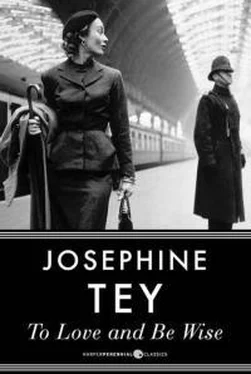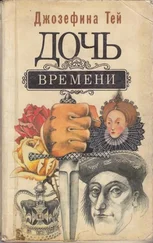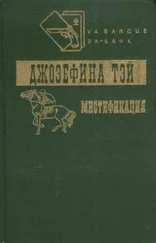‘Of course he will,’ Searle said. ‘You’re practically royalty in this country, aren’t you!’
If there was any feeling in the gibe it was not apparent.
‘I should really offer it to Debham’s,’ Walter said. ‘They did my book about farm life. But I quarrelled with them about the illustrations. They were dreadful, and the book didn’t sell.’
‘That was before you took to the air, I infer.’
‘Oh, yes.’ Walter pushed himself off the bridge and began to walk towards the field-path and dinner. ‘They did refuse my poems, after the farm book, so I can use that as a get-out.’
‘You write poems too?’
‘Who doesn’t?’
‘I for one.’
‘Clod!’ said Walter amiably.
And they went back to discussing the ways and means of their progress down the Rushmere.
‘Come up to town with me and see Ross,’ Walter said at breakfast next morning.
But Searle wanted to stay in the country. It was blasphemy, he said, to spend even one day in London with the English countryside bursting into its first green. Besides, he did not know Ross. It would be better if Walter put the proposition to Ross first, and brought him into the business later.
And Walter, though disappointed, did not stop to analyze the exact quality of his disappointment.
But as he drove up to town his mind was much less occupied than usual with the matter of his broadcast, and a great deal oftener than usual it strayed back to Trimmings.
He went to see Ross and laid before him the plans for Canoes on the Rushmere . Ross professed himself delighted and allowed himself to be beaten up an extra two and a half per cent on a provisional agreement. But of course nothing could be settled, he pointed out, until he had consulted Cromarty.
It was popularly supposed that Ross had taken Cromarty into partnership for the fun of it; as a matter of euphony. He had been doing quite well for himself as Cormac Ross, as far as anyone could judge, and there seemed on the surface no reason to rope in a partner; more especially a partner as colourless as Cromarty. But Cormac Ross had sufficient West Highland blood in him to find it difficult to say no. He liked to be liked. So he engaged Cromarty as his smokescreen. When an author could be received with open arms, the open arms were Cormac Ross’s. When an author had regretfully to be turned down it was on account of Cromarty’s intransigence. Cromarty had once said to Ross in a fit of temper: ‘You might at least let me see the books I turn down!’ But that was an extreme case. Normally Cromarty did read the books that he was going to be responsible for rejecting.
Now, faced with the offer of a book by the British Public’s current darling, Ross used the automatic phrase about consulting his partner; but his round pink face shone with satisfaction, and he bore Walter off to lunch and bought him a bottle of Romanée-Conti; which was wasted on Walter, who liked beer.
So, full of good burgundy and the prospect of cheques to come, Walter went on to the studio and his mind once more began to play tricks on him and run away back to Salcott instead of staying delightedly in the studio as was its habit.
For half of his weekly time on the air Walter always had a guest. Someone connected with the open air; a commodity in which Walter had lately taken so much stock as to make it a virtual Whitmore monopoly. Walter compèred the open air in the shape of a poacher, a sheep farmer from the back blocks of Australia, a bird watcher, a keeper from Sutherland, an earnest female who went round pushing acorns into roadside banks, a young dilettante who hunted with a hawk, and anyone else who happened to be both handy and willing. For the latter half of his time Walter merely talked.
Today his guest was a child who kept a tame fox, and Walter was dismayed to find himself disliking the brat. Walter loved his guests. He felt warm and protective and all-brothers-together about them; he never loved mankind so largely or so well as when he and his guests were talking together in his Half Hour. He loved them to the point of tears. And now it upset him to feel detached and critical about Harold Dibbs and his silly fox. Harold had a sadly under-developed jaw, he noticed, and looked regrettably like a fox himself. Perhaps the fox had stayed with him because it had felt at home. He felt guilty about having had this thought and tried to compensate by giving his voice more warmth than it would carry, so that his interest had a forced note. Harold and his fox were Walter’s first failure.
Nor was the talk successful enough to blot out the memory of Harold. The talk was about ‘What Earthworms do for England.’ The ‘for England’ was a typical Whitmore touch. Other men might speak on the place of the earthworm in nature, and no one cared two hoots either about nature or earthworms. But Walter pinned his worm on to a Shakespearean hook and angled gently with it, so that his listeners saw the seething legions of blind purpose turning the grey rock in the western sea into the green paradise that was England. There would be fifty-seven letters tomorrow morning by the first available post from north of the border, of course, to point out that Scotland too had her earthworms. But this was just so much additional evidence of Walter’s drawing-power.
It was Walter’s secret habit to speak to one particular person when broadcasting; a trick which helped him to achieve that unselfconscious friendliness which was his trademark. It was never a real person; nor did he ever visualize his imaginary hearer in detail. He merely decided that today he would talk to ‘an old lady in Leeds,’ or ‘a little girl in hospital in Bridgwater,’ or ‘a lighthouse-keeper in Scotland.’ Today for the first time he thought of speaking to Liz. Liz always listened to his broadcast, and he took it for granted that she would listen, but his imaginary listener was so much a part of his act that it had never occurred to him before to use Liz as the person he talked to. Now, today, some obscure need to bind Liz closely to him, to make sure that she was there, blotted out his ‘pretense’ listener, and he talked to Liz.
But it was not the success it should have been. The mere recollection of Liz wooed his mind from the script, so that he remembered last night by the river, and the darkening willows, and the single golden star in the side of the Mill House. A daffodil-pale light, ‘the way Liz liked them.’ And his attention wandered from the worms and from England and he stumbled over the words, so that the illusion of spontaneity was lost.
Puzzled and a little annoyed, but still not greatly disturbed, he signed the autograph books that had been sent to the studio for that purpose, decided what was to be done in the case of (a) a request for his presence at a christening, (b) a request for one of his ties, (c) nineteen requests to appear on his programme, and (d) seven requests for financial loans; and turned his face homewards. As an afterthought he turned back and bought a pound boot of chocolate dragées for Liz. As he tucked it into the glove compartment it occurred to him that it must be some time since he took Liz something on his way home. It was a pleasant habit; he must do it more often.
It was only when the traffic dropped behind him, and the Roman directness of the arterial highway stretched uneventful in front of him that his mind went past Liz to the thing her image was hiding: Searle. Searle. Poor Serge’s ‘middle-west Lucifer.’ Why Lucifer, he wondered? Lucifer, Prince of the Morning. He had always pictured Lucifer as a magnificent, burning figure six-and-a-half feet tall. Not at all like Searle. What in Searle had suggested Lucifer to Ratoff’s accusing mind?
Lucifer. A fallen glory. A beauty turned evil.
Читать дальше











